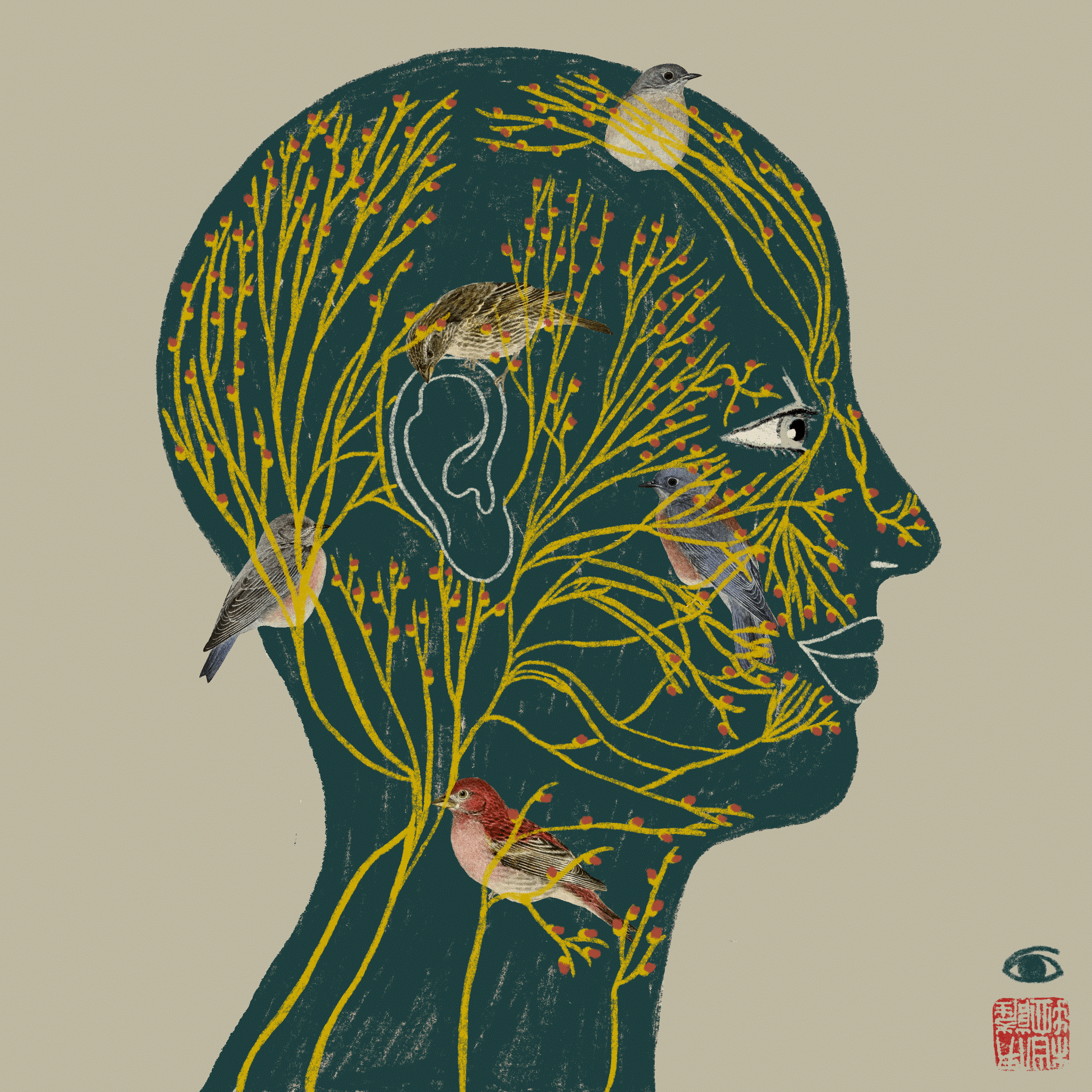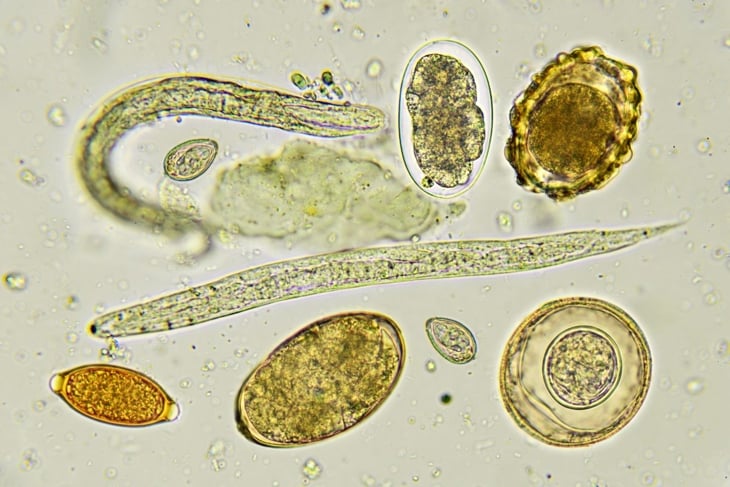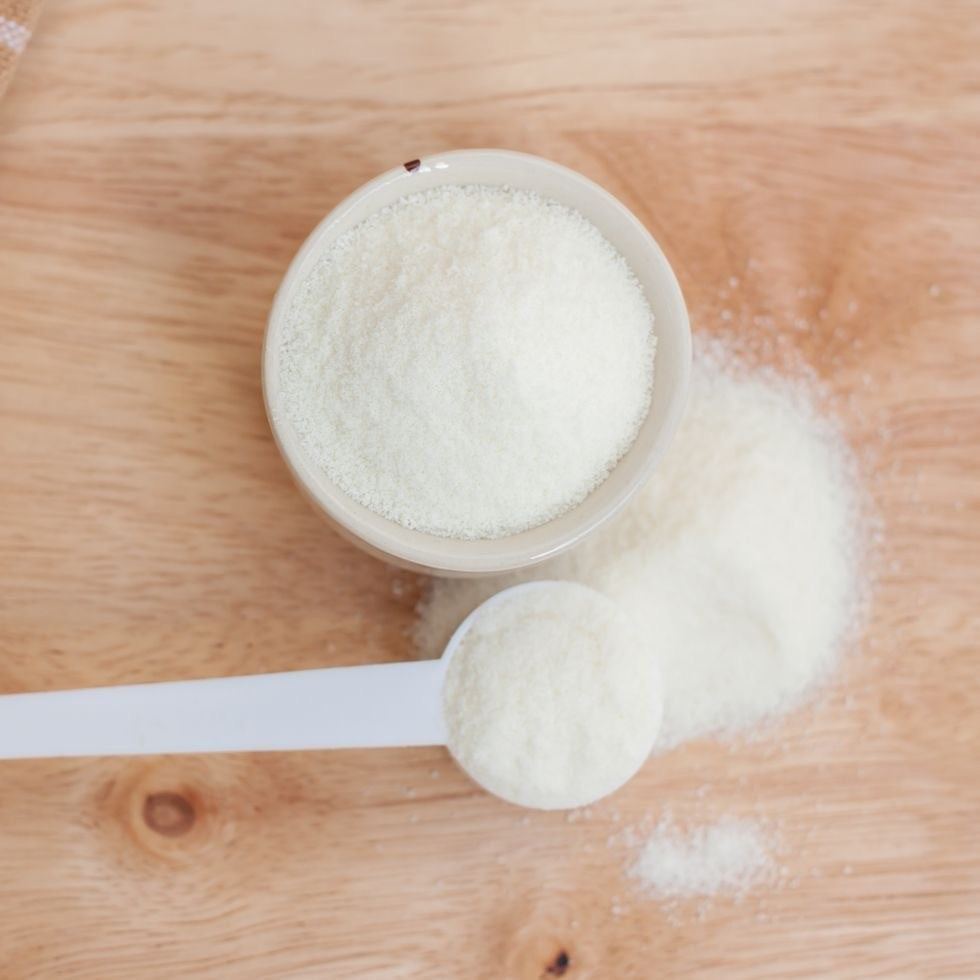
The UNTAPPED POTENTIAL of the VAGUS NERVE
Naturopathic Doctor, Clinical Herbalist, Iridologist, Author
The vagus nerve, the tenth and longest cranial nerve, plays a crucial role in the complex functioning of our nervous system. This mysterious nerve impacts several vital bodily functions, including digestion, heart rate, mood and stress response. The term "vagus" comes from Latin, meaning "to wander," which reflects the nerve's wandering reach throughout the body. It extends from the brainstem, travelling down through the neck and thorax, connecting with many critical organs such as the heart, lungs, stomach, liver, and intestines, and even branching out to the ears and throat. Despite its significant role, the vagus nerve often goes unrecognized, highlighting the need to understand its importance in maintaining wellness. In this article, I will explore the fascinating connection between our foods, lifestyle habits, plants and other holistic therapies aimed at protecting and enhancing the health of the vagus nerve, thereby nurturing the entire nervous system.

How does the VAGUS NERVE IMPACT HEALTH?
The vagus nerve plays a valuable role in the body's health, particularly the parasympathetic nervous system. This fascinating system is known as the 'rest and digest' system as it promotes relaxation, reducing stress, heart rate and even blood pressure. It also counteracts the sympathetic nervous system, which is responsible for fight or flight experienced during stressful periods. Some of its other fascinating roles include:
HEART RATE VARIABILITY When the vagus nerve is relaxed, a neurotransmitter called acetylcholine is released, slowing down the heart rate. This neurotransmitter helps maintain a normal heart rhythm, preventing problems like fast or irregular heart rate.
GUT-BRAIN AXIS The vagus nerve serves as the connection between the gut and the brain. It informs the brain about the gut’s state, including feelings of fullness, inflammation, and overall digestion. Have you ever experienced a gut feeling about something? If so, the vagus nerve may play a role in that sensation, as it transmits information from the gut to the brain and influences how we feel when we're nervous or stressed.
HAPPY MOOD The vagus nerve is instrumental in releasing key neurotransmitters, such as serotonin, which contribute to feelings of happiness, contentment and a sense of emotional stability. Imbalances in serotonin can also affect our eating behaviors leading to overeating, eating too many carbohydrates or even under-eating.
HEALTHY GUT The vagus nerve helps to release gastric acid, produce digestive enzymes, and even stimulate the muscles in the intestines to contract, helping to move food along. If you experience constipation, a lack of tone of the vagus nerve may the culprit.
STRONG IMMUNITY and INFLAMMATION The vagus nerve modulates inflammation by sending signals to the immune system. also affects our immune response. When the body is injured or infected, the immune system activates an inflammatory response to fight infections and repair tissues. If inflammation continues, it can contribute to inflammatory diseases like rheumatoid arthritis, inflammatory bowel disease and even cardiovascular problems. Luckily, the vagus nerve inhibits this by signaling a release of acetylcholine to inhibit pro-inflammatory cytokines. The vagus nerve connects the gut to the brain, allowing the nervous system to influence immune responses in the digestive system. Since a large portion of the immune system is located in the gut (such as gut-associated lymphoid tissue), the vagus nerve helps regulate immune activity in the intestines, promoting a healthy balance of immune cells in the digestive tract.
BLOOD PRESSUREThe vagus nerve plays a crucial role in regulating blood pressure by lowering the heart rate, promoting vasodilation (widening of blood vessels) and counteracting the effects of the sympathetic nervous system.
The vagus nerve is part of the enteric nervous system, also known as our "second brain." It is crucial to digestion, nutrient absorption, and gut health. Dysfunction of the vagus nerve can cause symptoms like anxiety, digestive issues, irregular heartbeats, and inflammation. A healthy vagus nerve supports mental wellbeing, reduces inflammation, and strengthens immune function. Techniques such as deep breathing and meditation can stimulate the vagus nerve, improving stress management and relieving anxiety. Understanding the vagus nerve's importance and incorporating holistic practices to support it can enhance our overall health and wellbeing.
OPTIMAL STRATEGIES FOR ENHANCING VAGUS NERVE FUNCTION
THE POWER of DIET
The foods we eat affect the health of the entire nervous system, including the vagus nerve. Including omega-3 fatty acids in your diet can reduce inflammation, nourish neurons and nerve health and improve vagus nerve function. You can find these healthy fats in avocado, nuts and seeds like walnuts, chia and flaxseeds, fatty fish like salmon and mackerel and superfoods like phytoplankton. Organic fruits and vegetables rich in antioxidants help to shield nerve cells from damage caused by oxidative stress. On the other hand, diets that are high in processed foods and saturated fats can harm the vagus nerve. These unhealthy foods often lead to more inflammation and stress, damaging nerve function and providing no building blocks towards nerve health. Therefore, focusing on whole, nutritious foods, like organic grass-fed meats, oily fish, whole grains and healthy fats, is essential to keep the vagus nerve and the entire nervous system healthy.
COLD DIPS in ICY WATER
Jumping into a cold shower or even an ice bath is one of the best ways to activate the sympathetic nervous system (the fight or flight response) and, shortly after, the rest-and-digest system (the parasympathetic nervous system). Studies have shown that sudden exposure to cold water (39°F/4°C) increases vagus nerve activation. Many cultures incorporate cold therapy as a wellness practice. For example, in Japan, people often use cold tubs after hot baths. At the same time, in Nordic countries, individuals frequently dip into cold water to enhance their immunity and overall wellbeing.

SINGING or CHANTING
It's no surprise to learn that monks who chant regularly experience incredible levels of health. Chanting involves deep, controlled breathing, vocal vibrations and mindfulness, which has been shown to profoundly activate the vagus nerve, lower stress, improve heart rate variability, enhance emotional regulation and promote overall well-being. Higher heart rate variability is associated with improved stress resilience and adaptability and increased activity in the parasympathetic nervous system, often referred to as the "rest-and-digest" system. Humming, repeating mantras, and singing each promote relaxation differently. Still, they all lead to the same positive outcome of improving vagal tone which in turn supports relaxation, a reduction in inflammation and blood pressure and a calmer, more balanced physiological state.
YOGA, MEDITATION and DEEP BREATHING
Some of the best types of meditation that can indirectly influence the health of the vagus nerve include loving-kindness meditation, mindfulness meditation, and chanting "OM." Slow, deep breathing—used in meditation, yoga, and other relaxation practices—stimulates the vagus nerve and promotes rest-and-digest nervous activity. The heart and neck contain neurons with specialized receptors called "baroreceptors." These neurons monitor blood pressure and transmit signals to the brain. When a person's blood pressure is high, these signals activate the vagus nerve, which connects to the heart to lower blood pressure and heart rate. This results in reduced activation of the fight-or-flight response (sympathetic nervous system) and increased activity of the rest-and-digest response (parasympathetic nervous system).
LAUGHTER
The colloquial saying 'laughter is the best medicine' may not be as far-fetched as once thought. Studies have proven that laughter can impact heart rate variability (HRV) which is known to enhance the overall health and tone of the vagus nerve.
BOOST your MICROBIAL WARRIORS
There is an undeniable connection between gut health, the brain and the vagus nerve. Certain probiotics influence this connection. For example, Lactobacillus rhamnosus can positively impact changes in the neurotransmitter GABA via the vagus nerve. This neurotransmitter can make you feel calm in stressful situations and slow down a racing brain benefiting anxiety, sleep and muscle tension.
MASSAGE
We all know the blissful feeling of having a massage and in fact, science is proving this is not just a feeling. Swedish, deep tissue, reflexology and other forms of massage not only lower cortisol levels but impact the release of serotonin and dopamine, enhancing happiness and relaxation. The vagus nerve has direct connections to the muscles in the throat and vocal cords, so gentle pressure or massage around these areas can activate this nerve creating a calming effect.
FASTING and CALORIE RESTRICTION
Intermittent fasting and fasting can positively impact the vagus nerve and overall body health by activating the parasympathetic nervous system, improving heart rate variability (HRV), reducing inflammation, and promoting autophagy and cellular repair. By improving vagal tone, fasting helps to balance the autonomic nervous system, thereby reducing stress, improving digestion and promoting mental clarity and wellness. Fasting can contribute to a better mood, emotional health and even protection against chronic diseases.
SLEEPING on RIGHT SIDE
While sleeping on your right side may not directly stimulate the vagus nerve, it can still have a positive effect on overall vagal tone and relaxation by promoting better heart rate regulation, digestive function, and lymphatic drainage.
EAT more FIBRE
GLP-1 is a satiating hormone that stimulates vagus impulses to the brain. This hormone has become well-known for its use in weight loss drugs. GLP-1 slows peristalsis or digestion, providing a greater sense of fullness after a meal. Eating fibre can have the same impact.
NUTRIENTS
A healthy parasympathetic nervous system and vagal tone relies on a supply of specific nutrients like magnesium, zinc, and B vitamins (B6, B9, and B12). These nutrients are found in leafy greens, nuts, seeds, legumes, grass-fed meats, oily fish, and whole grains. A healthy gut microbiome is also essential for good nervous system function and vagal tone. Eating foods rich in probiotics and prebiotics, like yogurt, sauerkraut, and kimchi, can help your gut health and benefit the vagus nerve indirectly.
THE POWER of PLANTS and SUPERFOODS
Nature plants, mushrooms and superfoods contain all of the magical secrets to help support the nervous system and the tone of the vagus nerve. My favourites include:
Ashwagandha (Withania somnifera) A nurturing adaptogenic herb that helps the body to adapt to the ravages of stress. By promoting a sense of calm, ashwagandha indirectly supports the health of the vagus nerve by increasing parasympathetic nervous system activity.
Rhodiola (Rhodiola rosea) Another one of my favourite adaptogens that helps the body to adjust to physical and emotional stress. It cleverly stimulates the parasympathetic nervous system, enhancing vagal tone and improving the body's ability to cope with stress.
Holy Basil (Ocimum sanctum) Also known as Tulsi, is another adaptogenic herb that can help reduce the physiological effects of stress. Its ability to calm the nervous system supports vagal tone and benefits parasympathetic nervous system activity. I often use this beautiful herb in my nervous system formulas.
Lemon Balm (Melissa Officinalis) A favourite amongst herbalists, this beautiful herb calms the nervous system, thereby helping to reduce anxiety, nervous tension, and sleeping problems.
Chamomile (Chamomile matricaria) A well-known herb used to promote relaxation, digestive calmness and a better sleep response. The vagus nerve helps regulate the digestive system, so chamomile's ability to ease digestion and relax the body may indirectly stimulate vagal tone.
Valerian Root (Valeriana officinalis) A sedative herb that helps calm the body, reduce anxiety, and improve sleep. It may help activate the parasympathetic nervous system and support vagal tone by promoting relaxation and reducing the effects of stress.
Ginger (Zingiber officinale) Is known for its digestive-supporting properties. Since the vagus nerve plays a key role in digestion, ginger's ability to stimulate digestive function and reduce nausea can indirectly benefit vagal tone. Additionally, its anti-inflammatory effects may help soothe the body's stress response.
Lion's Mane Mushroom (Hericium erinaceus) I love, love, love this mushroom due to its unique ability to support nerve regeneration, especially in the spinal cord and brain, while enhancing cognitive function. While its primary action is on nerve growth factor (NGF) and brain health, it also has a calming effect on the nervous system. Its health promoting properties and anti-inflammatory actions indirectly improves vagal tone and parasympathetic nerve health.

Reishi Mushroom (Ganoderma lucidum) The mushroom of ‘longevity’ is an adaptogenic mushroom known for its calming, adaptogenic and stress-reducing properties. It helps modulate the nervous system by reducing anxiety and promoting relaxation, supporting vagal tone and improving the parasympathetic response. It also has a positive impact on sleep, mood and cognitive health.
Cordyceps Mushroom (Cordyceps sinensis) The caterpillar mushroom is world renowned for its energy-promoting qualities that help to relieve fatigue. While it is well known for enhancing physical stamina, it can also help balance the autonomic nervous system, improving parasympathetic activity thereby supporting vagal tone, especially when stress and fatigue are involved.
Chaga Mushroom (Inonotus obliquus) A super nutritious mushroom known for its potent anti-inflammatory and immune-boosting properties. Chronic inflammation can impair the function of the vagus nerve, so by reducing inflammation, Chaga may indirectly support vagal activity and overall parasympathetic function.
Turkey Tail Mushrooms (Trametes versicolor) Well respected for its immune-modulating properties, this mushroom helps to maintain balance in the nervous system thereby enhancing vagal tone. It supports parasympathetic function by reducing systemic inflammation, having a positive effect on the vagus nerve.
There are countless plants, nutrients and superfoods found on earth that may indirectly or directly affect the well-being of the body’s vagus nerve.
|
My FAV Wholistic House Picks for the VAGUS NERVE include:
|
In love, peace and harmony,




Leave a comment
This site is protected by hCaptcha and the hCaptcha Privacy Policy and Terms of Service apply.